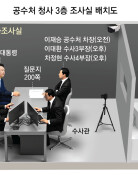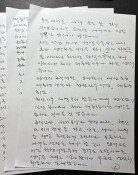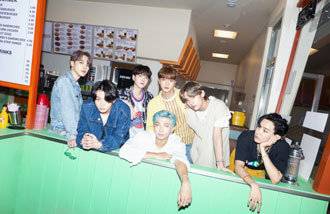The tragedy of having arrest warrant issued for sitting president
The tragedy of having arrest warrant issued for sitting president
Posted January. 01, 2025 07:57,
Updated January. 01, 2025 07:57
Seven out of 10 South Koreans believe President Yoon Suk Yeol has lost his legitimacy as president following the December 3 declaration of martial law, according to a Dong-A Ilbo New Year survey. The poll found that 70.4% of respondents believe the Constitutional Court should uphold the National Assembly’s impeachment motion against Yoon, almost three times higher than 25.4% who think it should be dismissed. Separately, 70.8% of respondents said Yoon should resign, regardless of the court’s decision.
On whether President Yoon’s actions during martial law constituted treason, 67.2% of respondents agreed. Only 27.8% opposed the idea. Two-thirds of the respondents considered Yoon’s deployment of armed forces to the National Assembly and the National Election Commission, along with the circulation of arrest lists, as acts of insurrection. Furthermore, as much as 72.3% disagreed with Yoon’s justification that martial law was necessary to address allegations of election fraud.
These results highlight the awareness of the people of South Korea, who have experienced mature democracies, on democratic common sense and principles. The survey reflects the prevailing public sentiment after nearly a month of unfolding events, including the impeachment motion, ongoing investigations into former Defense Minister Kim Yong-hyun and others linked to martial law, and the broader implications of Yoon’s actions. It was only among the conservative respondents, who comprised 27% of the survey, whose opposition to impeachment (53.4%) outweighed supporters of the motion (41.9%). Even among centrist respondents, 77.0% supported the Constitutional Court’s approval of the impeachment motion.
Acting President Choi Sang-mok has managed to avoid repeating the missteps of his predecessor, Han Duck-soo, by ensuring the Constitutional Court’s impeachment process proceeds smoothly, by appointing necessary justices. Choi’s leadership underscores the crucial sense of nonpartisan stewardship in this critical period.
Impeaching a democratically elected president—just eight years after the impeachment of former President Park Geun-hye—is a tragic event, to say the least. Yet South Korea’s democratic system exists to hold leaders accountable and sound alarm when they fail to respect its principles. Both ruling and opposition parties must navigate this process, focusing on historical responsibility rather than political and partisan interests. The public will closely watch how they handle the pending appointment of one remaining Constitutional Court justice.
Looking back, South Korea’s history is marked by both progress and setbacks. From the impeachment in 2016 to the current governance vacuum under Yoon, the nation has faced its share of missteps. Yet time has consistently revealed the country’s ability to move forward.
The martial law crisis of December 2024 and the impeachment proceedings against President Yoon have exposed flaws in governance and judgment, including a lack of boundaries between public and private affairs within the presidential office and the misjudgment on the part of the president and the first lady. Nevertheless, how South Korea addresses these challenges in 2025 will determine its ability to return to stability. While 2025 is about to begin with uncertainty and discontent, there is hope that the nation can end the rest of the year with a renewed sense of purpose and resolve.







